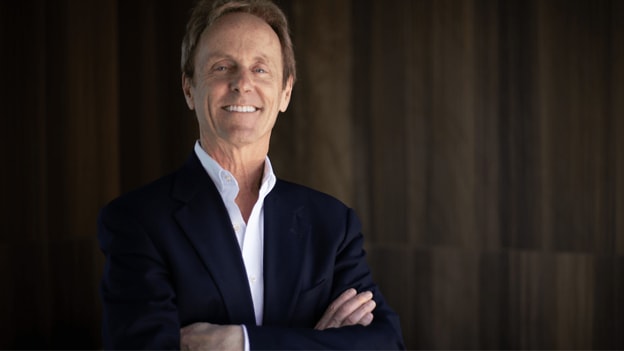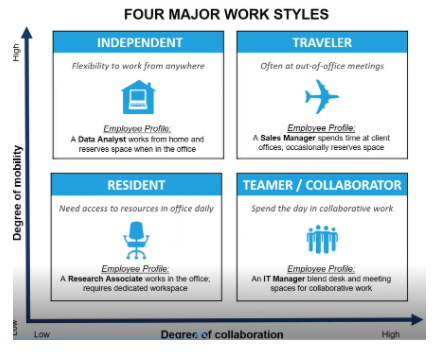The next new - Reimagining talent management with Josh Bersin

What will be the next phase of COVID-19 and how will it change talent management? Will we recover or will we never return to ‘normal’? Change is going to continue and right now the picture looks unclear. To reflect on how the second wave of COVID-19 will shape HR leadership and career trajectories, a number of HR leaders met this week for the People Matters Cohort and SAP SuccessFactors ‘The Next New: Talent Management Reimagined,’ Virtual Workshop.
James Thomas, Vice President SAP SuccessFactors India, led us in setting the context and “how to really embrace the ever-changing dynamics of talent and what it means to all of us and our organisations professionally and personally.”
We were also joined by Josh Bersin, Founder and Dean of the Josh Bersin Academy and a world-known industry analyst, educator, and thought leader in all aspects of HR, leadership, and HR technology. We were thrilled to have Josh take us through his observations and studies from the last few weeks, ending in a freewheeling discussion of the main issues facing professionals today - from being agile to engagement, stress and anxiety to work life balance and burnout - and what HR leaders can do to shape their management philosophies and approach the Next New.
Living in California, Josh Bersin has been experiencing COVID-19-related fallout since February. Since the outbreak, for the last seven months, Bersin has been conducting weekly calls with around 300 companies, talking them through six different topics about what they’re doing to deal with COVID. Here are some of his key observations and findings from these conversations:
The 'Ten Practices' that matter
When talking about the changing role of HR and talent management, Bersin highlights ten key practices that are going to make all the difference in the Next New. “These are the differentiating practices for companies that have responded quickly to the pandemic,” Bersin says:
- Focus support on employee health and safety.
- Aggressively listen to the workforce and define return to work plans.
- Create integrated support for families and the entire worker’s life.
- Reinforce and invigorate focus on purpose and mission.
- Communicate and support agile teams to deal with ambiguity.
- Quickly adopt technology to develop new products and services.
- Rapidly, creatively, and strategically hire new, needed talent.
- Heavily leverage contingent and part-time workers.
- Facilitate and support teams to experiment and learn quickly.
- Simplify and speed up performance management.
Among the companies Josh has interacted with since the pandemic, there have been varying degrees of success in bringing these practices into action. “In HR, we have to upskill ourselves to really achieve these goals: managing people and taking care of people, driving agility and change and reinvention of jobs, work and talent,” Bersin adds.
At this critical time, HR professionals cannot let themselves fall behind. “We are not learning Agile with a capital ‘A’,” Bersin says. “We aren’t learning the principles of Agile. We are learning to be agile. To me, that’s one of the most exciting things that’s been happening this year.”
“The world just changed overnight”
“Since around April or May, we’ve been trying to figure out how to go back to work,” Bersin says.
“What’s really been happening is a transformation. We thought it was a public health crisis, but companies are going through the four stage cycle.”
The four phases of the pandemic are as follows:

This applies in almost every case, no matter what industry you’re in. “If you’re a tech company it’s been great because people are buying technology like crazy. If you’re an airline it’s been horrible. If you run a hotel chain it’s been pretty bad. You’ve been transforming your company because the number of jobs and roles that have changed over the last year is probably as much as have changed over the last ten years.”
Everything we were thinking about and doing in talent management, Bersin says, suddenly got accelerated in a huge way due to the pandemic. For example, everyone in HR got to learn about public health and the issues of wellbeing, resilience and health.
Unsurprisingly, in May 2020, ‘health’ was the top issue on HR Departments’ Minds, with 26% of respondents to a Josh Bersin and CultureX survey listing this as their major concern. This was followed by ‘transition to report work,’ which was 17% of respondents’ top worry.
Compare this to the top issues on employees’ minds in July 2020, and it becomes clear that people are just as stressed out as organisations. Josh Bersin has been taking poll surveys since the pandemic started and believes “we’re going through a period of fatigue in most places, where most employees have been doing the best they can for seven or eight months and they’re getting tired.”
And what impact has all of this had on the function of HR? What is the role of HR in such stressful and disrupted circumstances?
The Big Reset in HR: New Operating Model
Throughout this transformation, HR has had to adapt from Responsive (Efficient) to Resilient (Adaptive). A key move here is from centrally controlled, distributed execution operating model to distributed control, centralized coordination model.
Most companies have gone through a whole series of transformations over the last decade, usually focused on efficiency and employee experience. Now, the success focus has shifted to speed and quality of response.
“Distributed, embedded HR professionals are now being asked to do much more and make many more decisions locally than they have in the past. That is what I would call a resilient operating model,” Bersin says.
Bersin points to the military and elements of what they, as an institution, have learned, including the notion that “victory is dependent on shared awareness, effective resource allocation, assessment of progress and recognizing the need to change approach quickly.” Each of these can be meaningfully applied to HR, in this case in how “common analytics and data must drive decisions, along with real-time feedback on all programs.”
Creating a resilient organization
When building a resilient organisation, it comes down to Organizational Resilience and Individual Resilience.
“We as human beings are pretty resilient animals,” Bersin says. “We fall, we get up.” As Bersin goes on to say, most of us were much more resilient and agile than we first thought. “We’ve had dozens and dozens of companies come to us during this process and tell us that they did things in days and weeks that would usually have taken months and years. And it wasn’t as hard as they thought.”
Using a mission, a positive attitude, a strong sense of community and the right tools, companies have proven their resilience and made incredible strides. If they are strategic, this resilience will be able to continue long term.
What companies should do?
Bersin Academy data shows there are a number of key areas of discussion for companies under the pandemic. Here are some other key points to consider:
- Communication matters most - “As much as possible, all the time,” Bersin says. “CEOs are now on video calls with the whole company.”
- Need to balance family time with work - Accommodating and understanding people’s family situations is now essential. At Nokia, for example, the first step HR Operations took when the pandemic hit was to “look at the age and the family status of all our employees to see who's going to be the most heavily affected.”
- Skills - PowerSkills like humility, empathy, patience, kindness, forgiveness and followership are increasingly essential.
The Impact of Stress on Employees. 92% of workers have experienced some level of stress related to coronavirus, leading to distraction and anxiety. This is particularly prevalent among younger workers. Of course, this has an impact on performance and more needs to be done to alleviate this.
When people perform well, they become engaged. “Simplify the work experience, clarify what people are responsible for, giving them the tools they need,” in order to make progress.
Management Philosophy has changed - In 2020, values such as “citizenship, trust, growth and learning,” have surged in importance, along with productivity, wellness and responsibility.
Leadership readiness is now critical. “We’re in a mode of CEO as Chief Empathy Officer,” says Bersin. Empowering people, giving support, a sense of clarity and telling people what they don’t have to spend their time on.
Redesigning The Career. “In a world where the organisation changes fast, we need to think of the company as more like a marketplace where decisions about who goes where, who has the right skills and what skills you should be developing are more driven by the needs of the company,” i.e. less manager-decision driven.
Employee Experience
Before COVID, employee experience was tied to all kinds of benefits, things like parental leave, financial fitness, parties, stock options, game rooms etc. Now, Bersin says, employee experience centres on things like working from home, travel policies, trust, PPE masks, sanitisers and burnout. There has been a notable shift.
However, not everybody has the same employee experience. One way to track this is to segment the workforce into the following groups:

“People are going to need different things depending on their role,” Bersin says. “The employee experience is very complex.” We now know the employee experience is far from just an HR issue, but concerns everything from IT, Facilities, Legal, Team, Managers and Executives.
Reflections & Observations from the Cohort
We then broke away to discuss these ideas in more depth. Some key takeaways from these smaller conversations include:
- What is needed from HR in these times? There is so much to do, capacity will be a concern. What can we do to scale this and have a measured approach when the pressure is on?
- How to approach training and learning? Indira Sovokar, SVP HR at Genpact shared: “the how becomes the question. In the midst of all this, how do you motivate people to learn? Do you have the infrastructure for them to go and learn - open source platforms, curated content, access to other information? Hand-in-hand, how do you create that intrinsic passion in them that they go and leverage these platforms?”
- Leadership presence and communication. Dilip Pattanayak, President & CHRO Steel & Corporate at JSW, shared: “during this time of crisis, in most organisations leadership really stood up. Trust was seen among the people and within the leaders.”
- How organisations have made a significant investment in the digital landscape, both as a way to enable remote work and a way to facilitate operations.
- Seeing opportunity in the crisis and “making lemonade out of lemons.”
- Agility at all levels. “Whether it was for those working from home or for those in the manufacturing sector,” shared Alka Mittal Director of Human Resources, Oil & Natural Gas Corp Ltd.
- Connection was key. “All our employees are our colleagues in any corner of the world. They had to feel connected,” Alka added.
- Collaboration, teamwork and creating a sense of inclusion, particularly when old structures and stereotypes had been swept away or dismantled.
- Empathy has become core to everything we are doing, regardless of which sector we are working in.
What a diverse, valuable set of perspectives were brought into the mix! Each one of us was undoubtedly able to take away something unique from this session. It was wonderful to hear such a range of reflections and experiences on the challenges currently facing HR leaders.
It’s safe to say the driving force behind much of what we will do over the coming months depends on experimentation. During this disrupted time, we really have the opportunity to experiment, to fail, try things out, figure out what works and discard what doesn’t. “Chances are that whatever the experiment, if you’re really putting the business outcome at the centre, you’re also failing forward,” Ester Martinez, our CEO & Editor-in-Chief said in closing. “That is the future of HR.”














